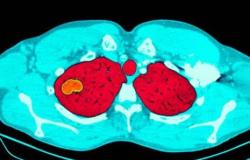This revision would notably include cancers, psychological and respiratory disorders. These pathologies are increasingly linked to occupational exposures, requiring adaptation of criteria to guarantee equitable treatment.
Recognition of occupational diseases: an obsolete system to be revised
The current system for recognizing occupational diseases, based on tables annexed to the Social Security Code, no longer reflects scientific advances. Many pathologies linked to occupational exposures are not recognized, making access to compensation complex for employees. The National Agency for Food, Environmental and Occupational Health Safety (ANSES) emphasizes that these tables, although essential, are sometimes outdated in their criteria. For example, the diagnostic methods required by certain tables no longer correspond to current medical practices.
To respond to this problem, ANSES recommends an overhaul of these tables. It proposes to simplify the designation of diseases based on recognized medical terms and by removing obsolete technical details. It also recommends harmonizing the treatment times between the general and agricultural regimes, and extending them to allow appropriate medical diagnoses.
Broader consideration of emerging pathologies
Among ANSES’s flagship proposals is the integration of 40 new pathologies with a proven or probable link with occupational exposure. Cancers occupy an important place, particularly those affecting the lungs, breast, larynx or even the colon, often linked to exposure to radiation, chemicals or even working conditions such as night work. The agency also highlights non-cancer disorders, such as mental illnesses, respiratory pathologies (such as asthma) and cardiovascular disorders.
In addition to these additions, ANSES underlines the importance of taking into account the risks of poly-exposure, where several harmful agents interact to cause multifactorial diseases. This global vision would make it possible to include more workers who are victims of previously unrecognized diseases. However, it is up to the State to adopt or not these recommendations, which still leaves uncertainty surrounding an effective reform.
Read also
Burn-out or depression: how to tell the difference and get through it? Advice from a specialist
Subscribe to consoGlobe on Google News so you don’t miss any news!
consoGlobe also recommends…
Written by Anton Kunin
A journalist by training, Anton writes articles on climate change, pollution, energy, transport, as well as animals and…
https://www.consoglobe.com/redacteur/anton
See his profile and all his articles
Become a writer
Health






